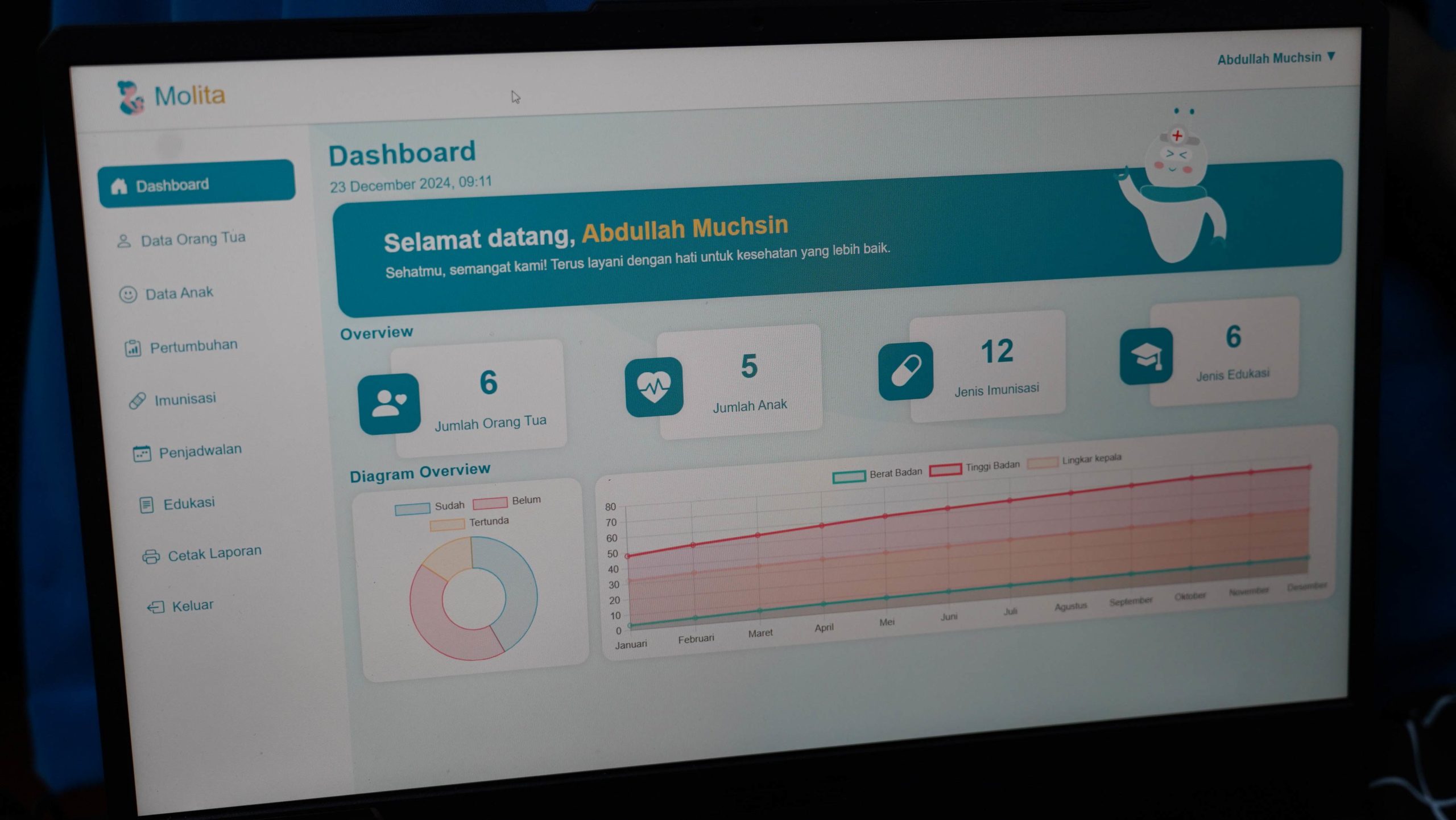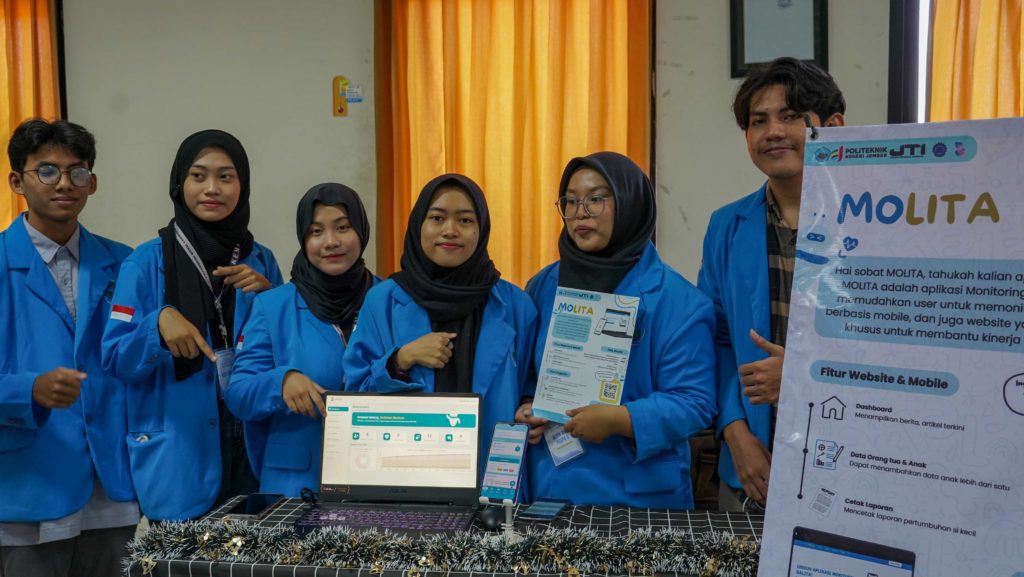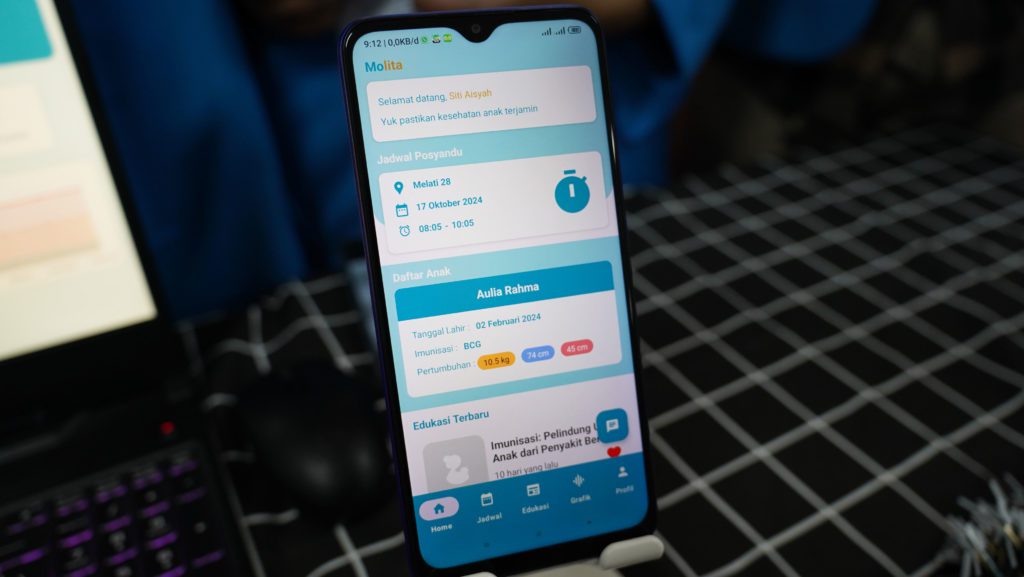

As part of a Project Based Learning (PBL) activity, a group of students from the Informatics Engineering Study Program, Department of Information Technology (JTI), Politeknik Negeri Jember (Polije), introduced the Molita application. This application was developed as an innovative solution to assist the Posyandu at Mangli Health Center in digitizing toddler health data and supporting efforts to reduce stunting.
Molita, which stands for Monitoring Toddlers, is a digital-based application that replaces the function of the KIA (Mother and Child Health) book with a more modern and integrated system. According to Aisyah Hamda, one of the development team members, this application is designed to make it easier for mothers to monitor their children’s growth while also helping Posyandu cadres in the data recording process.
“With digitization, toddler data is now stored more securely and organized, reducing the risk of data loss or damage that often occurs with manual books,” Aisyah explained.
The Molita application offers several standout features. One of them is the toddler growth monitoring feature, where Posyandu cadres can input data such as height, weight, and head circumference of toddlers. This data can then be accessed directly by mothers through the application. Additionally, Molita has an automatic scheduling system for immunizations and Posyandu visits, complete with reminders for missed appointments.
“We also included an educational feature so that mothers and cadres can access information related to child health and development, enabling them to provide better care,” Aisyah added.

According to Aji Seto Arifianto, S.ST., M.T., the project supervisor, the development of Molita is part of an exhibition of student projects from the fifth semester. This exhibition serves as a platform to showcase various technological innovations designed by students through a collaborative approach between lecturers, students, and industry partners.
“This project proves that students are capable of implementing information technology to solve real problems in society, including in the fields of health, livestock, fisheries, and agriculture,” said Aji.
In addition to providing concrete solutions for community needs, the Molita application has also received positive feedback from industry partners.
“The feedback we’ve received has been very positive. Our partners feel that this application truly provides benefits. However, there are still areas that need improvement to perfect this work,” Aji continued.
The Molita application is not only designed to ease the manual data recording process but also provides direct benefits to mothers, especially those with more than one toddler. With the evaluation feature, abnormal toddler growth can be quickly reported to the Health Center for further action. This aligns with the main goal of the program, which is to help reduce stunting and improve the health quality of toddlers in Indonesia.
Aji hopes that PBL activities like this will continue to be carried out regularly so that Polije students not only develop their technical skills but also make a real contribution to society.
“Hopefully, each piece of work produced can increasingly meet the needs of society while creating a broader positive impact,” he concluded.
With Molita, Polije proves its commitment to shaping a generation that can leverage technology to create change, supporting the healthier and happier growth of Indonesian children. (rda)